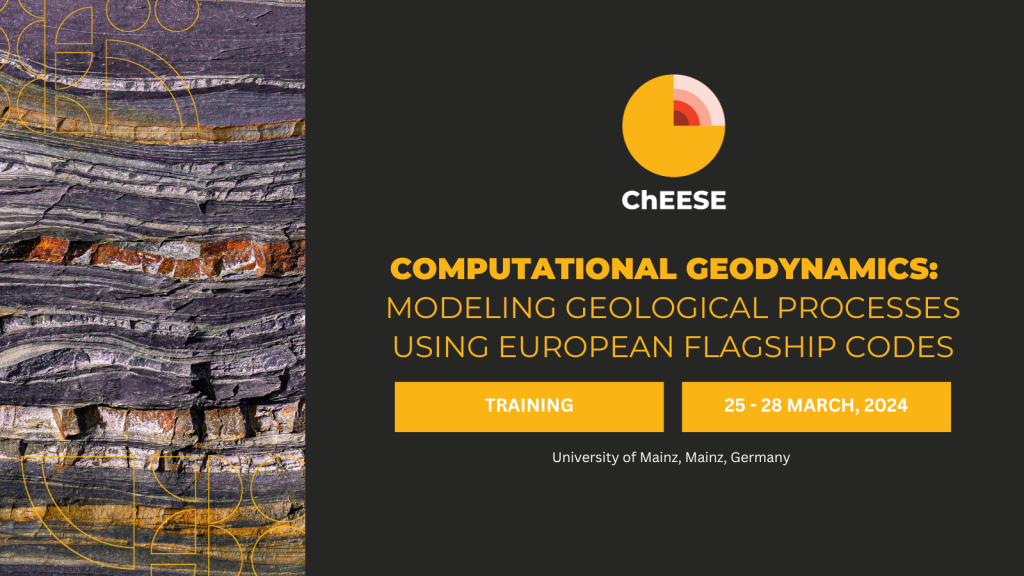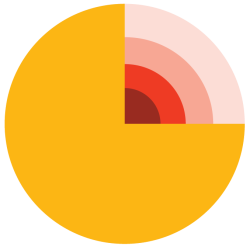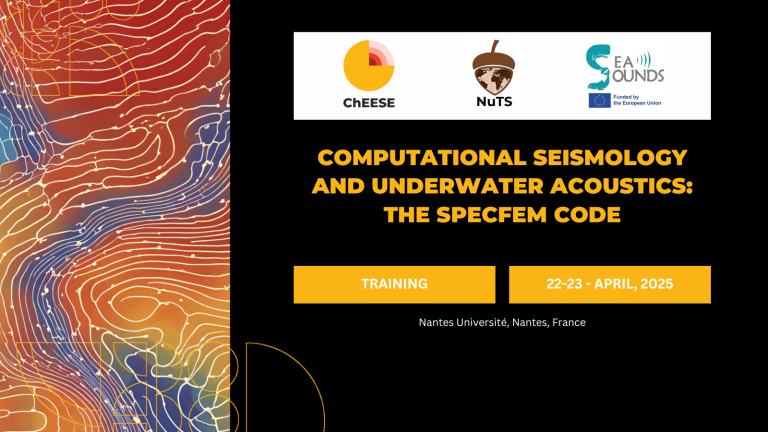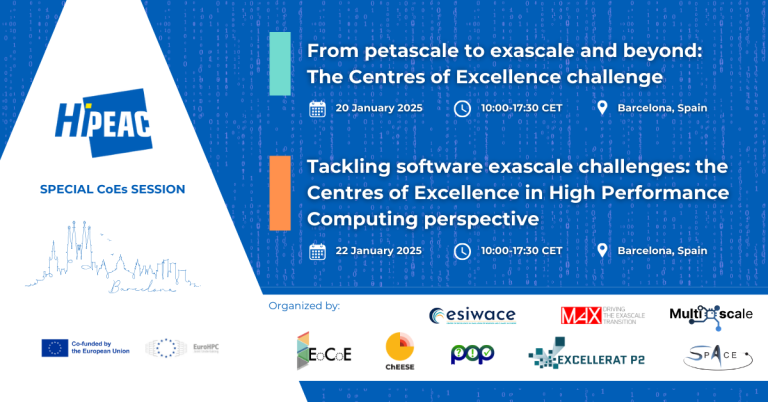Training · 25 - 28 March, 2024
Computational geodynamics: Modeling Geological Processes using European Flagship Codes

Date: 25 – 28/03/24
Location: University
of Mainz, Mainz, Germany. Johann-Joachim-Becher-Weg 21, Room 01-114, 55128 Mainz
Cost: There
is no registration fee. The attendees will need to cover the expenses for travel, accommodation and meals.
Registration: https://casedissemination.typeform.com/to/kLZ64xgX
(Limited to 20 participants)
Programme: Read here
Geological processes such as subduction dynamics, collision, rifting, convection or magma migration take millions of years, and understanding them can be facilitated by simulating them in the computer and comparing the results with available constraints. In this class, participants will learn how to do this, using the European flagship codes LaMEM and pTatin3D. Participants will get some theoretical background in computational geodynamics, as well as plenty of hands-on exercise time. They will learn how to use julia to create model setups for geodynamic simulations, how to run the simulations on both their own laptops and on high-performance clusters, and how to analyse results. There will also be time to help participants create model setups that can be used in their own research projects.
Requirements: Basic knowledge of computers.
Learning Outcomes: Participants will learn how to create model setups of geological problems, setting up and running numerical simulations, logging in and monitoring the execution of parallel jobs on linux servers, and analyzing the model results. They will also get some experience in the julia programming language, and in using the Paraview visualization software.
Academic Staff:
Boris Kaus (JGU)
Anthony Jourdon (SU)
Nicolas Riel (JGU)
Iskander Ibragimov (JGU)
Laetitia Le Pourhiet (SU)
IP notice: The software is open-source and can be used for later projects as well
Further information:
BRING YOUR OWN LAPTOP.
If you do not have access to eduroam, let us know ahead of time



